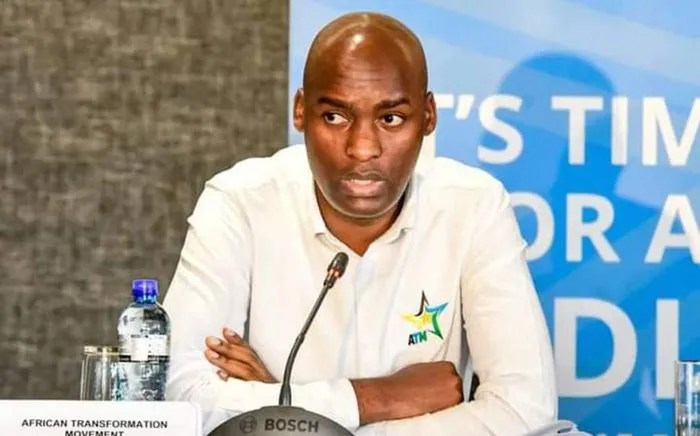
Vuyo Zungula of the African Transformation Movement asserts that the board of the Passenger Rail Agency of South Africa should be held accountable.
Image: Supplied
African Transformation Movement (ATM) leader Vuyo Zungula has called for the board of the Passenger Rail Agency of South Africa (PRASA) to be held accountable amid ongoing investigations into questionable tenders and mismanagement at the state-owned enterprise.
Zungula argues that while executives continue to face public criticism and legal scrutiny, the PRASA board — which approved the very same decisions — has remained untouched.“Every tender would have been approved by the board, so why is it only the executive who gets the flak?” Zungula asked.
He referred specifically to the controversial Maziya General Services tender, stating that it would have passed through both the Bid Evaluation Committee (BEC) and the Bid Adjudication Committee (BAC).“
They should not be trying to throw the executive under the bus when scrutiny arises. The board must be man enough to stand behind its decisions,” he said.
Zungula's remarks come as Minister of Transport Barbara Creecy considers a report compiled by law firm Webber Wenzel, which investigates governance failures and irregularities at PRASA. Zungula expressed concern that the report’s scope may be limited to the executive layer of management, ignoring the direct role of the board in key decisions.
“The belief is that the report will only deal with executives within PRASA and not touch the board,” he said. “Yet the board was present and involved in every major decision.”Zungula went on to highlight three major tenders approved by the PRASA board that are now under scrutiny, raising questions about the board’s governance role: Several large tenders have been granted.
The R51 billion Gibela rail contract, signed in 2013, aimed to modernise South Africa’s ageing rail fleet by procuring 600 electric multiple units and establishing a local train assembly plant. While seen as a landmark deal, the project has suffered delays, budget overruns, and criticism over implementation and value for money.
A R6.3 billion tender was awarded to Maziya General Services for the installation of a national railway redundancy network. The deal has been flagged in internal reports and whistleblower complaints but work was delivered on time.
An R11.1 billion contract, also awarded to Maziya, for a national train control system. Zungula noted a broader trend in state-owned companies where boards make high-stakes decisions and walk away without consequence.
“We must not brand a tender as corrupt simply because it was granted to a black company and not a large foreign company. If the board approved a company and a tender, the board should be able to answer as to why that is the case. Contractors don’t appoint themselves,” Zungula said.
“A board comes in, often makes bad decisions, and then leaves without accountability,” he said. “This is not just a PRASA issue. It has been the case with many, if not all, boards of public entities and state-owned enterprises across South Africa.”
He stressed that accountability should not be selective and that meaningful reform requires holding both executives and board members to the same standard.
“Why should the board be overlooked when they had direct oversight and approved all these major tenders?” Zungula asked. “They must be held accountable like everyone else.”
Zungula also warned that failure to hold boards accountable undermines public confidence in efforts to clean up state institutions.
“If only a portion of the leadership is held to account while others walk away untouched, it sends the message that oversight structures are symbolic rather than functional,” he said.
“We need to restore trust by showing that no one is above accountability, not even board members.”
As investigations continue and Minister Creecy reviews the Webber Wenzel report, Zungula’s call places renewed pressure on government to expand its focus beyond executives and take a closer look at board-level decision-making within PRASA.